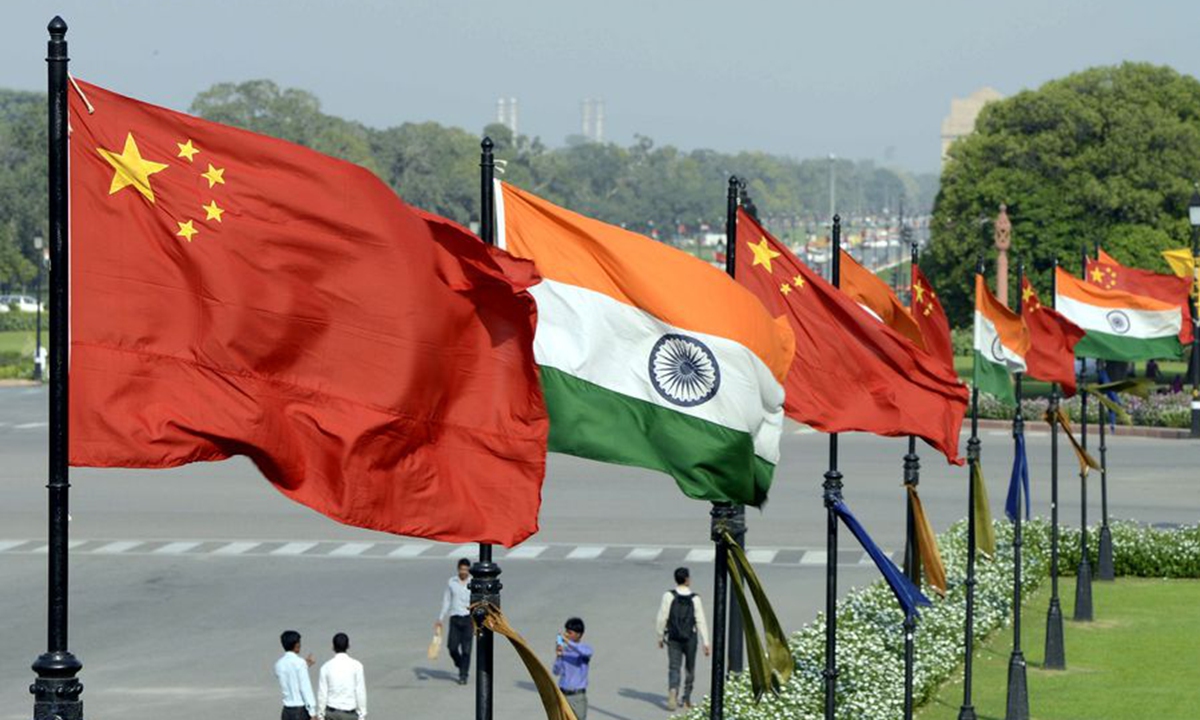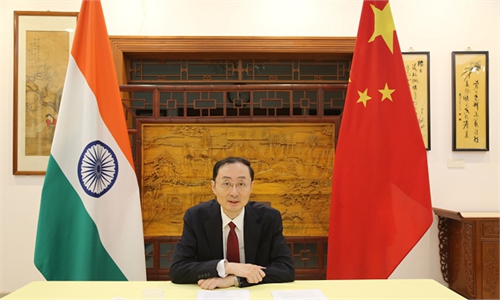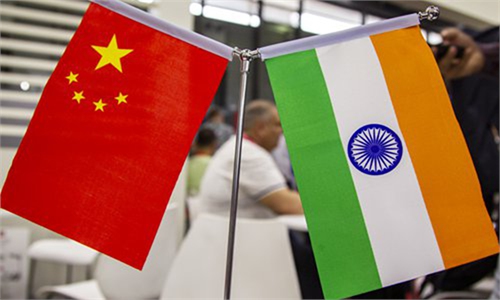India may create new border conflict to shift attention from worsening economic, pandemic conditions: expert
Calls grow for further disengagement a year after clash

China India Photo: Xinhua
Experts said on Wednesday that despite China and India having channels to discuss disengagement in remaining regions, China should beware of nationalistic manipulation in India, following media concerns over the China-India border issue a year after the Galwan Valley clash.On June 15, 2020, the border spat between China and India turned into the first deadly military clash between the two since 1975, resulting in four Chinese deaths and those of at least 20 soldiers from India. After the ninth round of senior commander-level talks, China and India announced an agreement for disengagement on the north and south bank of Pangong Lake in February.
The Telegraph reported on Tuesday that India is strengthening its military build-up amid "the fear of new conflicts." On Monday, Russia media outlet Independent said that the warmer weather in the Himalayas may lead to a greater danger of clashes between China and India.
Indian's army chief general Manoj Mukund Naravane said in May that Indian troops are in a high state of readiness and alert, as India still has 50,000-60,000 troops in Ladakh, and deployments haven't thinned after the disengagement agreement, Indian media reported.
Sun Weidong, the Chinese Ambassador to India, said in his latest public speech that the boundary dispute is a question left over from history that should be placed properly in the bilateral relationship, and China insists on handling the disputes through negotiations while upholding its determination to safeguard its sovereignty, security and development interests, according to the Chinese embassy in India.
As neighbors with populations of over 1 billion, the two countries share more common interests than divergences, Sun said.
Qian Feng, director of the research department at the National Strategy Institute of Tsinghua University, told the Global Times on Wednesday that most Chinese and Indian soldiers have disengaged. Albeit consensus failed to achieve in the remaining areas (such as the Hot Springs and Depsang Plains), the standoff scale is much smaller with a less significant impact.
In the eleventh round of senior commander-level talks that took place in Ladakh on April 9, senior representatives from the two countries met for 13 hours on the issue of disengagement at the remaining sites.
The two countries have been maintaining communication through military and diplomatic channels, said Qian, noting that due to the epidemic spike in India, face-to-face talks have been suspended, but the hotline and telephone communications are still available.
Some viewed the current China-India border situation much better than the same period last year. But experts warned that if the remaining stalemate persists, it will be detrimental to military-to-military relations and the stability of the western section of China-India border.
Hu Zhiyong, a research fellow at the Institute of International Relations of the Shanghai Academy of Social Sciences, told the Global Times on Wednesday that if the economy and epidemic continues to worsen in India, India might start a new conflict on the border.
"India has a political tradition of always looking for border issues to distract attention when there is a crisis at home," Hu said. "China needs to be very vigilant about this."
India reported over 92,500 new COVID-19 infections on Tuesday, with an average of over 111,000 cases in the last 7 days. Despite a downward trend in the epidemic, the Bharatiya Janata Party led by Indian Prime Minister Narendra Modi is seeking more support in local elections, after defeats in crucial states in May.
China's infrastructure along the border is well built and although there are not many troops on the front line, they can always be reinforced from the second line, Qian said.
Indian External Affairs Minister Subrahmanyam Jaishankar said in May that India-China relations are at a crossroads, and they cannot think of cooperating with China in other areas as long as border tensions continue, Indian media reported.
Two days before the disengagement of Chinese and Indian troops, US President Joe Biden and Modi agreed on February 8 to work closely to strengthen an Indo-Pacific framework amid China's "threats."
Russian President Vladimir Putin said over the weekend that the Chinese and Indian leaders are responsible people who can settle border disputes, and it is important that no extra-regional powers interfere in the process, media reported.




